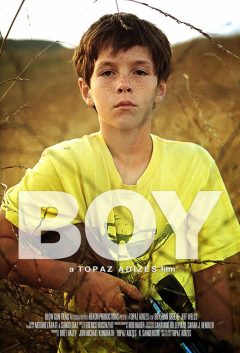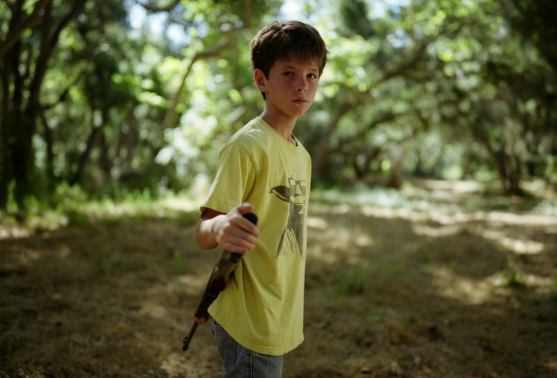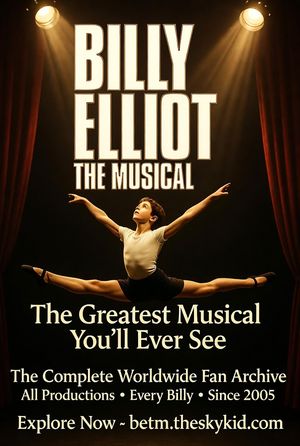
Sometimes one is fortunate to get access to a promising short movie while it is still in the Festival circles. Most times, however, as in the case of Topaz Adizes’s film Boy, one has no other choice but to wait until the film is released to the general public on the Internet. The wait is not always easy, especially if the director has released exceptional production photographs on the film’s website prior to its availability.
But finally the day comes and the movie is made available at Vimeo (which is frequently chosen by movie professionals instead of YouTube).
The promotional photos for Boy were not misleading, as one of the film’s best features is its cinematography. Boy was shot on 35mm Anamorphic film and impresses with its composition and the skillful usage of natural light. The somehow restricted depth of field and the shallow, soft focus of the image kept the attention on the main protagonist of the film: a ten-year-old boy who is wonderfully played by the young actor Finn Greene. One doesn’t get much insight into the boy’s personality, other than few subtle hints — a lonely boy waiting for his dad (played by Jeff Wells) or a quiet ride in his dad’s pickup truck with the only question being asked is “How’s mom?” It’s a question that remains unanswered.

Finn Greene in Boy (2011)
The father and son are unlikely to share many moments together, both appear somehow remote. The boy owns a rifle, likely a present from his father judging from the latter’s redneck attire and attitude. He spends time at his father’s place – not a tiny bit less lonely than before – and passes time by shooting some glass bottles. It seems that owning a rifle (and using it) is an attempt to make himself accepted by the father, a way to prove his manhood. At one point, the father picks a live target for his son. A choice is to be made, and what’s at stake is the boy’s innocence.
While I appreciated the film’s visuals and the acting of the young protagonist (who I hope to see in feature films in the feature), I found the story told in Boy to be quite disturbing. What must a child do in order to gain acceptance? Is masculinity worth the sacrifice of innocence? Will we regret one day the choices we have made? These and many more questions came to mind after watching the film.
Having seen Boy, I wished I had the opportunity to view it on a huge cinema screen. A full feature film with such cinematography would awe the audience at a theater. On the other hand, my ability to play the film several times while thinking over its story has its own advantages.
